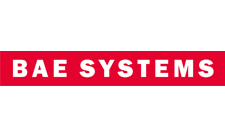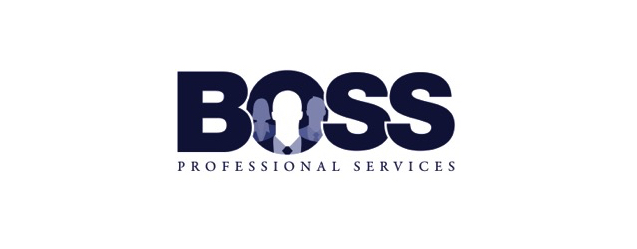You only need to tap the words ‘Engineering’ and ‘Career’ into Google to realise the size and strength of the engineering industry. While you may think roles just include the typical areas like civil engineering, mechanical engineering and electronic engineering, you’d be surprised at some of the other specialisms that you could go into and some of the areas of crossover.
Many find jobs based on their degree, but it’s becoming increasingly common for engineers to complete a master’s degree. Chartered engineers will need a masters or be able to demonstrate that they have gained the necessary knowledge from work experience. If you’re considering teaching at university level, a PhD is usually required. The ideal candidate will have a good balance between academic success and relevant work experience.
Role of an institution
To begin with, membership of an engineering institution licensed by the Engineering Council UK (ECUK) is a first step to securing your professional standing in a variety of ways. According to the ECUK, registering with them as a Chartered Engineer, Incorporated Engineer or Engineering Technician brings the following benefits:
- It identifies you as having competences that employers value
- It indicates that your competence, and your commitment to professionalism, have been assessed by other engineering professionals
- It demonstrates that your competence may be compared with standards applicable in other parts of the world
- It confirms that your commitment to professionalism is underwritten by the support of a national engineering institution or society licensed by the Engineering Council UK
This in turn can help with work, pay, promotion, gaining respect and keeping abreast of new developments in the industry. There are 35 engineering bodies accredited by the ECUK. For more information visit www.engc.org.uk.
Depending on the route you take in to engineering you can achieve the status of Engineering Technician, Incorporated Engineer or Chartered Engineer. In general terms, chartered status is normally achieved through the academic route but it can also be achieved by progressing through the various states of accreditation. Institutions like the IET can offer more advice on this.
Other valuable sources of information and advice are recruitment exhibitions. This is a great opportunity to meet potential employers face to face, learn more about the industry and specific companies, as well as getting yourself noticed.
The National Engineering and Construction Recruitment Exhibition is the largest event of its kind in the UK, offering invaluable careers advice and vacancies for all engineering and construction professionals, from recent graduate positions to high level skilled professionals.
Graduates with more rounded skill sets, such as strong communication skills and team working skills will find their employability increase. Employers want to see candidates who have more than the obvious engineering skills of an investigative mind and problem solving capabilities. They also want to see computer software and organisational skills.
Those with project management skills or languages are in great demand; recent news reports show employers have spoken out about their need for candidates who show and understanding of the language of business awareness, or have foreign language skills to enable work on international projects.
IET Working for you
The Institution of Engineering and Technology (IET) is one of the world’s leading professional societies for the engineering and technology community
Students and professionals at the start of their engineering and technology careers are given recognition and support via awards which include undergraduate and postgraduate engineering and IT scholarships to provide financial support for students.
Abellio operates public transport contracts in the UK and Germany. Every day in the UK over 16,400, Abellio people provide safe, easy and reliable public transport for more than a million passengers on our services. In the UK we operate buses within our Abellio London business, as well as train services for ScotRail, Greater Anglia, Merseyrail, […]
Apollo Fire Detectors specialises in the design and manufacture of high-quality fire detection products. Headquartered in the United Kingdom, Apollo has regional offices in the USA, Germany, China, India and the Middle East. Apollo can look back on 40 years of manufacturing excellence. The company applies the most modern production techniques and has invested in […]
Wherever you work, whatever you do, at Arcadis you’ll have the chance to improve quality of life. It’s why we focus on attracting people who bring their all, value new perspectives and seize the opportunity to transform their world – and the world around them. It’s why, in our organisation, you’ll find a culture that […]
Avara Foods is one of the UK’s leading food businesses supplying great tasting chicken, turkey and duck products to some of the biggest supermarkets and restaurants in the country. We own and manage every part of our supply chain; from feed mills and farms, through to processing, packing and distribution. Today our agricultural network spans […]
At BAE Systems, we provide some of the world’s most advanced, technology-led defence, aerospace and security solutions. We employ a skilled workforce of 85,800 people in more than 40 countries. Working with customers and local partners, we develop, engineer, manufacture, and support products and systems to deliver military capability, protect national security and people, and […]
Graduates in British Airways have made such a difference to our business; it’s no wonder we’re looking for more. We offer a range of programmes focussed on your development and delivering our vision to be the ‘most admired airline in the world’s key cities’.
Start your own Extraordinary Story Bentley’s journey began over 95 years ago. As part of the Bentley graduate scheme you could weave your own story into ours, following in the footsteps of the many extraordinary people who have made Bentley the marque it is today. Bentley is a luxury brand unlike any other. We set […]
The Bosch Group is a leading global supplier of technology and services. In fiscal 2015 some 275,00 associates generated sales of 70.6 billion euros. The Bosch Group operates in 4 business sectors: Automotive Technology: As the world’s largest independent parts supplier to the automotive industry, we significantly contribute towards making driving ever safer, cleaner, and more […]
Boss Professional Services Ltd are an established recruitment consultancy based in Oval, London. Operating since 2014 we have seen consistent growth by over 50% year on year in relation to staff, turnover and profit. We are now looking to increase personnel headcount in certain areas of our business including Medical Devices, Specialist IT & Energy/Ship […]
For over 30 years Clyde Marine Training has been the first choice for those looking to pursue Merchant Navy careers, and we are recognised as the UK’s largest maritime training company. At any one time, we manage approximately 1,000 cadets on behalf of numerous shipping companies across the globe. These include some of the largest […]
Colas Rail is one of Europe’s leading suppliers of railway infrastructure services, constructing and renewing all forms of railways across Europe and the UK. We are part of Colas Group, which gives the company a solid foundation based on a high level of expertise in rail operations, logistics and technology. At Colas Rail we look […]
The Department for Transport is a ministerial department that supports the transport network to keep Britain on the move. It delivers some of the largest infrastructure projects in the country and is dedicated to investing in its people Commercial Development Programme The Commercial Development Programme (CDP) is a three year programme which develops thorough commercial […]
Diamond Build Plc was founded in 1979 and has an excellent reputation for the delivery of social housing, education, public buildings and healthcare sector works. We are a family owned business and equal opportunity employers, with an inclusive and friendly atmosphere and an annual turnover approaching £20m. Operating throughout the Greater London area we undertake construction […]
Our business is about people and technology. We believe people underpin our success and technology is the tool that drives transformation, efficiency, and growth for our customers. Based on the south coast, we give our graduates full training and a diverse, challenging career. Waitrose, Barclays, and RM Education are just some of the organisations that […]
About FDM Group FDM Group is an award-winning company and the market leader in the Recruit, Train and Deploy industry. We are renowned for our dynamic Careers Programme, which transforms graduates, returners to work and ex-forces personnel into IT and business professionals before deploying them across our client base. We are proud of our diverse […]
Heathrow Airport is a city within a city. Joining us is a chance to build your career in an organisation that matters to millions. To create great experiences for the 210,000 (and counting) passengers who pass through our doors each day. Life with us means exploring unlimited opportunities. Making a real difference to people who […]
The country never stops, so neither do we. We’re responsible for operating, maintaining and improving all 4,300 miles of England’s motorways and major roads, and we’re aiming high for the future. We connect communities, sustain businesses and keep the economy moving. Delivering these ambitious plans calls for us to invest in talented people. Our people […]
Fujifilm Diosynth Biotechnologies
We are a world leading cGMP Contract Development and Manufacturing Organization (CDMO) supporting our partners in the biopharmaceutical industry with the development and production of their biologic, vaccines and advanced therapies. With over 25 years of experience in process development and cGMP manufacturing, a dedicated staff of over 1,200 and a reputation for excellent customer […]
HS2 will be the nation’s new high-speed rail network, connecting North and South. But it’s much more than just a railway. It’s a way to make new connections and unlock possibilities. Bringing Britain’s cities, businesses and people closer together, HS2 will create jobs and help communities grow well into the next century. You are thinking […]
Founded in 1941, the worldwide Hilti Group evolved from a small family company, with the headquarters of the Hilti Group based in Schaan in the Principality of Liechtenstein. Some 22,000 employees, in more than 120 countries around the world enthuse their customers and build a better future. Hilti excels through outstanding innovation, top quality, direct customer […]
IMI plc, the specialist engineering company, designs, manufactures and services highly engineered products that control the precise movement of fluids. Its innovative technologies, built around valves and actuators, enable vital processes to operate safely, cleanly, efficiently and cost-effectively. The Group works with industrial customers across a range of high-growth sectors, including energy, transportation and infrastructure, […]
KBR provide consulting, technology, engineering, and construction solutions for a wide range of markets, from aerospace and defence to energy and chemicals to intelligence and beyond. Today, we employ more than 38,000 people globally, with customers in more than 80 countries and operations in 40 countries.
As prime complex weapons contractor to the UK MoD, MBDA design and manufacture some of the most sophisticated technology for our armed forces. We are a multinational group with over 10,000 employees worldwide and offer a variety of opportunities in engineering and business. Our graduate programme allows individuals to move around the business in a […]
Method Consulting is a specialist engineering and sustainability consultancy focusing on building services and sustainability in the built environment – our common goal is to reduce the environmental impact of buildings through better design, analysis and assessment. Our approach to building design is open and collaborative – we analyse problems, evaluate options and provide our […]
Established in April 2014, we are a joint venture between Mitsubishi Heavy Industries (MHI) and Vestas Wind Systems A/S (Vestas). Our parent companies are two of the global leaders in wind and energy, inspiring and leading us forward. Our track record in offshore wind dates back to 1995, but in onshore wind our roots can […]
WE’VE BIG PLANS FOR THE RAILWAY – AND FOR OUR PEOPLE We have £25bn earmarked to invest in landmark projects and initiatives. We’re hoping you’ll choose to join us and help turn our plans into reality; to create a world-class railway and really make a difference to rail travel in Britain. We’re already making history […]
Ofcom is the independent regulator and competition authority for the UK communications industries. We regulate the TV, radio, fixed-line telecoms, mobile telecoms and postal sectors, plus the radio spectrum over which wireless devices operate. We are now seeking applications from graduates to join our coveted Graduate Scheme for 2018. As a Graduate at Ofcom, you […]
Prysmian Group is the world leader in the energy and telecom cable systems industry. Each year, the Group manufacturers thousands of miles of underground and submarine cables and systems for power transmission and distribution, as well as medium low voltage cables for the construction and infrastructure sectors. We also produce a comprehensive range of optical […]
Raytheon Company, with 2013 sales of $24 billion and 63,000 employees worldwide, is a technology and innovation leader specialising in defence, security and civil markets throughout the world. With a history of innovation spanning 92 years, Raytheon provides state-of-the-art electronics, mission systems integration and other capabilities in the areas of sensing; effects; and command, control, […]
We are a world-class organisation – and we need world-class graduates to lead our multi-skilled teams. Our challenging officer roles require dynamic people in skills ranging from engineering to nursing, and from air operations to logistics. The training package is first-rate and it’s backed by major lifestyle benefits and extensive travel.
The change in our world is more profound than ever, driven by a new scale and speed of urbanisation, digitisation and industrialisation. New technologies, enabling distributed and connected energy for the first time, challenge us to redefine the way we live our lives. We believe access to energy is a basic human right. We want […]
SRS UK is a subsidiary of Stadler Service AG, Switzerland. SRS UK provides a train maintenance service for a growing number of clients in the UK. In the next few years over 100 new Stadler trains will be joining the English railway network. This is an excellent prospect for SRS UK, which supports the maintenance […]
Joining the British Army, you’ll get much more from life than you ever would with a civilian career – you’ll have the opportunity to do something that really matters, with a team that are like family to you. The sense of belonging in the Army is next level: when you’ve trained with each other and […]
The London Taxi Company is the leading global manufacturer and retailer of fully accessible, purpose-built London Taxis. We are universally acknowledged for creating the famous Black Cab, now an international icon. We pride ourselves on the instantly recognisable and robust design of our hand-built Black Cab, renowned for its ability to cover hundreds of thousands […]
Triumph is the original British motorcycling company, it is a business that is famous for building iconic motorcycles, from the original Bonneville to the current Rocket, the unstoppable Tiger Explorer and the incredible Speed Triple. First established in 1902 and now based in Hinckley, Leicestershire, Triumph Motorcycles is the largest British-owned automotive manufacturer, producing around […]
UK Power Reserve is a leading provider of secure, flexible and low carbon services to the UK electricity market. With an 813MW portfolio of decentralised thermal power generation and battery storage assets, we help keep the country’s electricity system balanced and resilient. Our fast-ramping, low-cost assets are located across England and Wales, improving competition and […]
Vodafone is a leader in technology communications through mobile, fixed, broadband and TV. We have extensive experience in connectivity, convergence and the Internet of Things, as well as championing mobile financial services and digital transformation in emerging markets. Since making the first mobile call in the UK on 1 January 1985, Vodafone has grown into […]









































